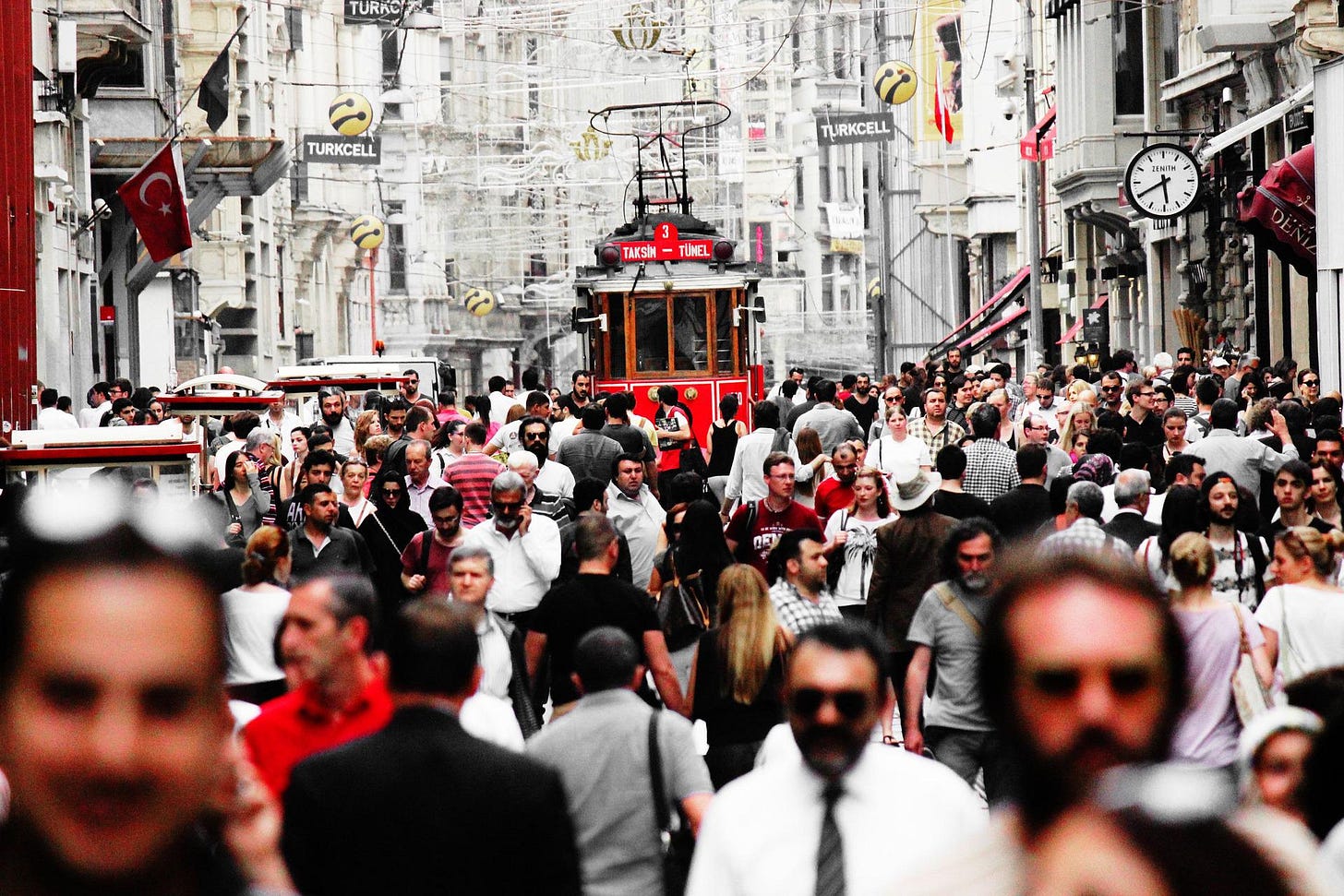Something which is seriously tiring for people is to be confronted incessantly with scary articles, social media posts and commentaries about the climate crisis. Especially as it comes on top of a whole list of other crises. Eventually people get bad news burnout and stop listening.

Next worst is reading or watching people who are shouting things like "we need to destroy capitalism", "we need to have a transition", we need to do something about the climate” etc etc but without any real and solid proposals.
The worst however is those people who have found and built up a following and insist on using provocative language and alarmist soundbites like "social collapse", " the end of the world" "the end of days" ," the worst is ahead of us" etc etc. you understand what I mean. The problem with this is that when people are stressed they become more conservative and less open to change. It becomes harder for them to hear and understand the progressive ideas that we so desperately need.
So to all those people who write and give interviews and use the type of vocabulary and style that I have just mentioned , please stop, you are not helping. We need calm, not slogans, cliches and soundbites.
Please
You are making the work we have to do harder .
Confronted as we are by a toxic cocktail of crises, it is crucial that we stop reacting and start acting.
We know the solutions to, frankly, all of the crises that we have created. That said, what is sometimes difficult for people to understand is that these solutions don’t work unless we go the full Monty. We have to think in a holistic way, joined up if you like. Everything is connected to everything else, this understanding provoked a paradigm shift in science and is starting to get into the mainstream. Nevertheless newspaper articles and soc med posts continue to promote a fractured and simplistic vision of the world and our problems.
For example, yesterday I read that a farmer using regenration agriculture techniques was suffering less from the current heatwave than other farmers. The farmer had spent years regenrating the soil on his farm, better infiltration, better soil humidity retention etc. Well done him, he has taken the first step towards building a resilient farm. The newspaper article presented the idea that if everyone did the same as him it’d all be alright.
Three things, one : the system developed by the farmer works for him, some aspects could be adopted by other farmers working different soils, in different climates with different contexts. Some won’t work well elsewhere.
The second point is that Regen-ag is only part of the solutions we need. Rebuilding soil is good! It needs to be integrated with a holistic landscape plan involving Keyline, micro dams, agroforestry, sylvo-pasturalism etc.
Thirdly, there is the market side, it’s all well and good to produce quality cereals, fruit, vegetables meat etc but where and to whom does it go. If if heads off into the food industry and supermarkets it is likely to become a part of the ultra transformed foods that are so bad for us. Supermarkets kill off local shops and drain money away from local communities.
An old axiom was “think globally, act locally” which is a good idea. We also need to think globally/holistically about how things are organised locally.
The only completely holistic and complex approach that has been developed is Permaculture. Whilst many people may still think that it is about how to have a plot of vegetables it is much more than that and always has been. As a Permaculture designer working for a client, farmer, local authority, the UN …. I try as much as possible to take into account the whole system and not just a part of it. We are talking about a totally integrated approach. Food production systems, water management, energy production, housing/buildings, people, the economy, governance and decision making, the list is long. Think in terms of a jigsaw, these aspects are all pieces of a whole. Each piece has to be integrated into the whole in such a way that the whole becomes a resilient system that looks after people and the natural systems in which it finds itself.
What follows is a series of articles about how we can act in a concrete way to reconstruct our societies and economies. The articles are based on my second book, its title translates as "Urban, social and economic Permaculture : a manifesto for socio-ecological reconstruction. It is based on my 30 plus years working around the world as a permaculture designer.
The type of people who attack tend to attack positive solutions based proposals
The pop-up experts. These are the sort that proliferate on the social media platforms. They have an amazing capacity to transform a few or no understandings into an expertise of any given subject. They are adept at promoting themselves and seem to have unlimited self confidence, even when confronted by such things as facts or a real expert.
The blinkered experts. These are those who have an expertise of a subject but completely lack any holistic approach. An economist for example who only sees a need for economic growth without taking into consideration the environmental consequences.
The mercenary experts. These people are the tools of a number of industries and governments. They use a variety of wargames strategies like obfuscation, slander, fake research etc to drown out the sincere experts and their work. Think leaded petrol, tobacco, the climate crisis….
Steve



